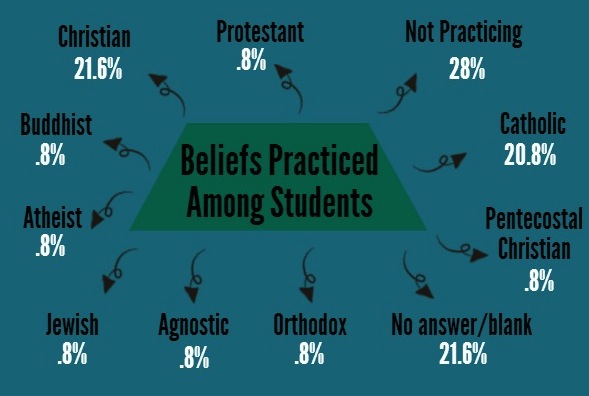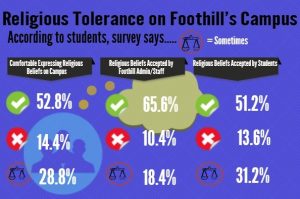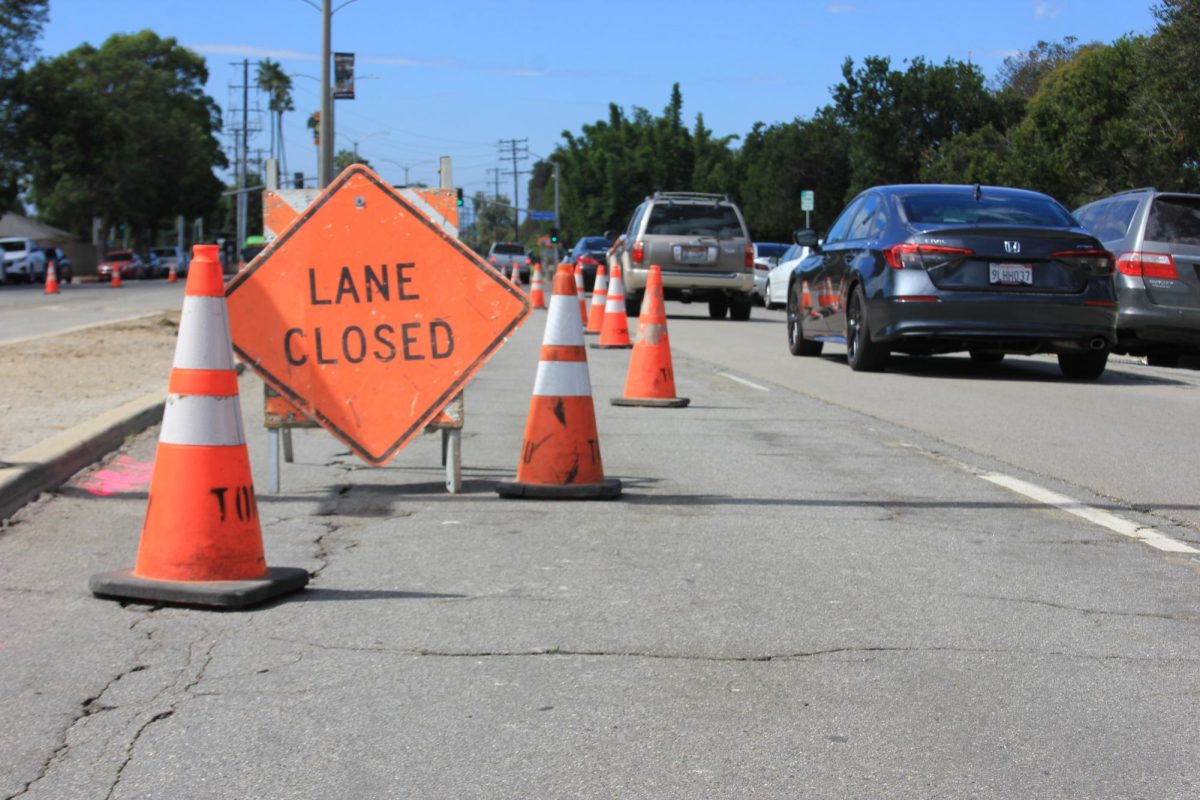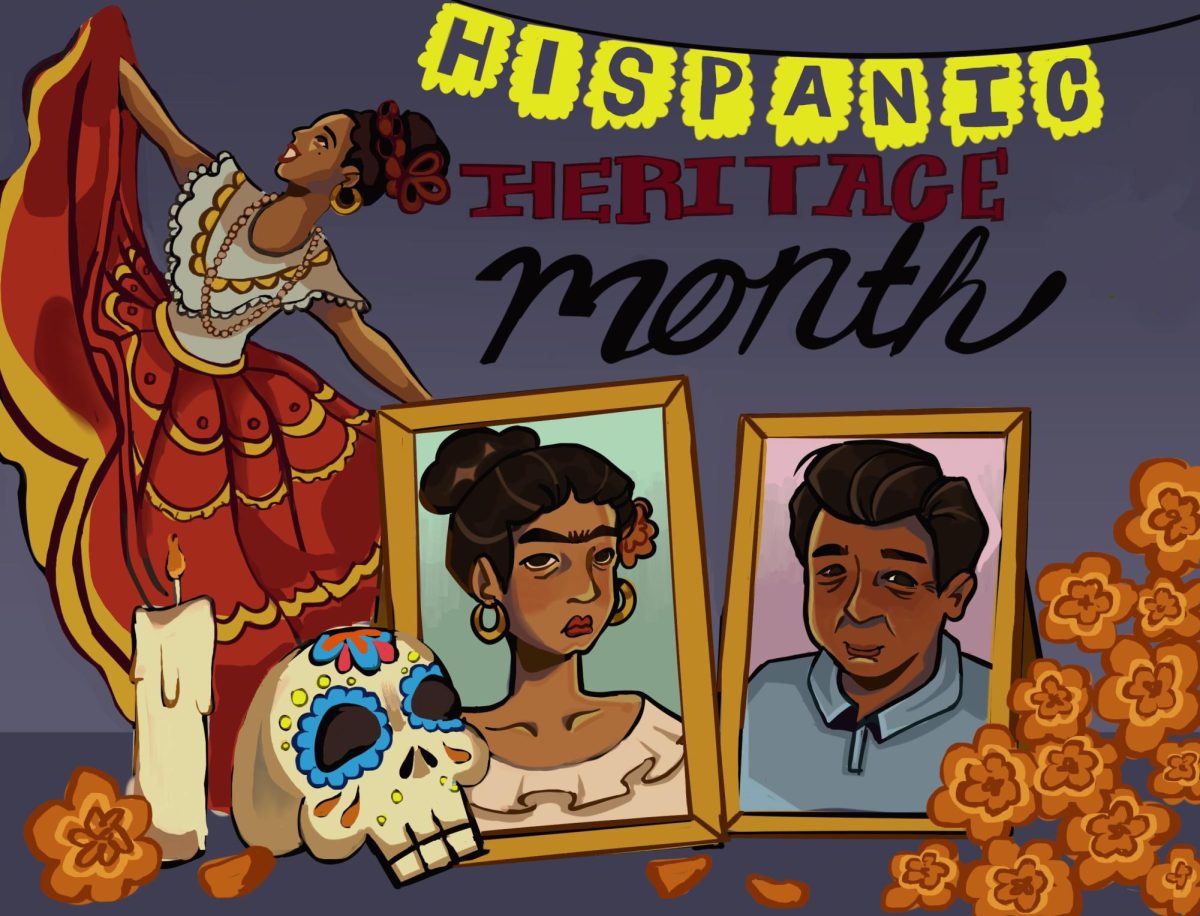
The goal of any high school campus is to make its students feel welcome and free to express their political, ethnic, and religious beliefs.
According to a survey that the Foothill Dragon Press conducted with 125 students from grades 9-12, a majority of students feel that Foothill is a religiously tolerant campus; 52.8 percent of the surveyed students said that they feel comfortable expressing their religious or nonreligious beliefs at school.
During the 12 years that Principal Joe Bova has been at Foothill, he has rarely encountered conflict with students regarding religion or their beliefs.
“Foothill’s been recognized as one of only 40 schools in California high schools that has what they call a much higher, much more positive culture than other schools,” he said. “I think that’s based on a really accepting environment for all types of different people, whether it’s religious beliefs or other ethnicity or their sexual orientation.”
Of the students surveyed, 28 percent do not practice a religion, while the most practiced religion was Christianity at 21.6 percent and Catholicism at 20.8 percent.
Senior Emmy Manset practices Reform Judaism and goes to Temple Beth Torah every other Friday night.
“I don’t really see a difference while I’m at school,” she said. “I mean, I hang out with totally different people, I have a friend that’s Atheist, and I have a friend that’s Mormon and then I’m Jewish. We don’t really talk about our religion while we’re at school, so it doesn’t really affect how I act around school.”
Administration and staff implement reason when handling religion
School districts have different religious policies and guidelines put in place to keep teachers from potentially offending students. The policies and administrative regulations are straight forward, as well as the district mission statement. Although all campuses are slightly different, the administrators and teachers have to abide by board policies, as well as regulations and philosophies.
“The education code has provisions in there for, not only protection of people’s religious freedoms,” Bova said. “But also provisions for dealing with situations where there might be any type of harassment, including religious, and somebody being harassed based on a religious belief.”
The results from the survey show that 65.6 percent of students feel that the Foothill staff and administration tolerate their religious and nonreligious beliefs.
“We’re so liberal that people are very open-minded to different beliefs, different ideas,” said biology and physiology teacher Mika Anderson. “I don’t know if that’s true across the board in all schools, but at least at this school, there are a lot of groups that mix well together and respect each other’s thoughts and ideas.”
Keeping religion set apart from lessons can be difficult, but students feel that the teachers at Foothill do a good job of keeping it separate.
“I think teachers here generally tend to do a good job at keeping their opinions from their lessons,” said senior Bailey Simpson, who is Agnostic. “If they have an opinion, they say, ‘This is not part of the lesson, this is only my opinion, this is my personal life,’ so I think all teachers here do a good job of that. But yeah, the science teachers that I’ve had definitely keep evolution and religion separate.”
Creationism is the belief that the earth is only a few thousand years old and that God created earth and all life forms on it over a period of six 24-hour days.
https://twitter.com/AustinCharlesVI/statuses/430894568226447360
Evolution is the idea that all living organisms developed and diversified from previous life forms on earth.
The only honest way to approach science is to be willing to be proven wrong. That is why Creationism which starts with faith is not science.
— Good_Beard (@NP_McGivern) June 7, 2012
Due to conflicting ideas about creationism and evolution, Anderson believes that in order to consolidate their beliefs in evolution, student’s must understand creationism as well, and vice versa. Debates between evolutionists and creationists are still continuing to this day, the most recent one to receive public attention being the one between Bill Nye and Ken Ham.
In her classes, Anderson teaches evolution and how earth and living species were formed.
[soundcloud url=”https://api.soundcloud.com/tracks/133963433″ params=”color=ff0000&auto_play=false&hide_related=false&show_artwork=true” width=”100%” height=”166″ iframe=”true” /]
In order to argue for one side, evolutionists and creationists need to see the perspectives of the opposing side. “You have to understand and be knowledgeable about all different points of views,” Anderson said.
https://twitter.com/wtheckman1010/statuses/430869970650931200
Foothill’s religious tolerance higher compared to other campuses
Counselor Debbie Freeman feels that Foothill has a very high tolerance for students with all kinds of religions and beliefs.
“I think that our students are educated and open to acceptance more than anywhere I’ve ever seen,” Freeman said. “They don’t flinch or bat an eye when somebody’s different and that [applies to] all realms, including religion, so I think on the whole we do have acceptance toward everyone and I think that includes all religions.”
In some cases however, Freeman has had some students come to her in distress.
[soundcloud url=”https://api.soundcloud.com/tracks/133980028″ params=”color=ff0000&auto_play=false&hide_related=false&show_artwork=true” width=”100%” height=”166″ iframe=”true” /]
Sophomore Rachel Witt is Catholic and considers her family religious because they go to church together every week.
“I have never seen someone being ridiculed because of their beliefs on campus. There aren’t any religions I know of that are looked down upon here,” she said in an email.

While major religious conflicts are rare at Foothill, other schools in the United States have had issues concerning religion.
In December of 2013, 6-year-old Isaiah Martinez of Merced Elementary School was prevented by his teacher from handing out candy canes that had a religious message attached to them. The religious message told the legend of the candy cane. The teacher threw away the messages.
According to an NBC Los Angeles article, the child’s lawyer wrote a letter, “demanding a written apology and the implementation of a new policy to prohibit school officials from ‘bullying and intimidating’ Christian students and religiously affiliated students.”
The separation of church and state means that public schools should not be involved in school-sponsored religious activities. This includes school-endorsed prayers and teaching religious ideals in classrooms, such as creationism.
However, there are occasions where a student’s religious beliefs may be tested, undermined, oppressed, or insulted in a school environment, either by a teacher or a fellow classmate; that’s when administration steps in.
“If there ever was a religious conflict or situation on campus, our APs, our assistant principal, [would] do investigation on that, but we always work as a team, collaboratively,” Bova said. “If there’s a tough decision to be made, we’ll sit down together, talk it through, get everyone’s viewpoints on it then make the [decision]. It’s always a better decision that way, anyway.”
Senior Hunter Godfrey practices Methodism and sees religion mostly accepted around school.
“It’s mainly accepted. It mainly just leads into discussion of what you think about it, it’s not so much, there’s conversations, and I think once a year, there’s a heated conversation about it, but most of the time it’s just what ideologies you get from not practicing or practicing,” he said.
Amid religious tolerant culture, some still feel unaccepted
The survey shows that 51.2 percent of students feel that their religious beliefs are tolerated and accepted by their classmates, while the other 13.6 percent of students say they don’t feel their beliefs are accepted by the student body and 31.2 percent feel that their beliefs are only sometimes accepted by the students.
According to sophomore Camille Spittle, Foothill has a less accepting atmosphere compared to the other high schools, which is caused from “the teachers rubbing off on the students.”
“I don’t think we speak up enough. Everyone is so used to the school’s more liberal beliefs, everyone is so used to that, so they feel like they can’t speak up because when they do, they get shut down,” she said.
Spittle is a member of the Generation Church Club, commonly referred to as GC, and there have been times when she’s overheard students deriding the club.
“We have the freedom of religion and I feel like I can’t have that here,” Spittle said. “They say they want to be tolerant, but when it comes to other people’s religion, they don’t want anything to do with it.”
When asked why she thinks some students don’t feel that their beliefs are tolerated on campus, freshman Katie Hernandez said, “I think it’s because some people are kind of afraid of expressing themselves, if they believe in God or not. I think they’re afraid other people are going to think, ‘Oh, that’s weird, God’s not real.’ They’re afraid that they’re going to be offended or they’re just afraid,”
Freeman believes that moments where students experience religious conflict is a good opportunity for them to discuss their differences in a respectful manner and learn [new things].
“Sometimes [the students are] very surprised by someone’s religious beliefs, but I think that’s a really good opportunity to discuss it, and I always use that opportunity and grab it to have a discussion,” Freeman said. “As far as intolerance or not respecting one another, I think that very little of that goes on here.”









Ami Ballmer • Mar 1, 2014 at 6:30 pm
“Let me never fall into the vulgar mistake of dreaming that I am persecuted whenever I am contradicted.” – Ralph Waldo Emerson